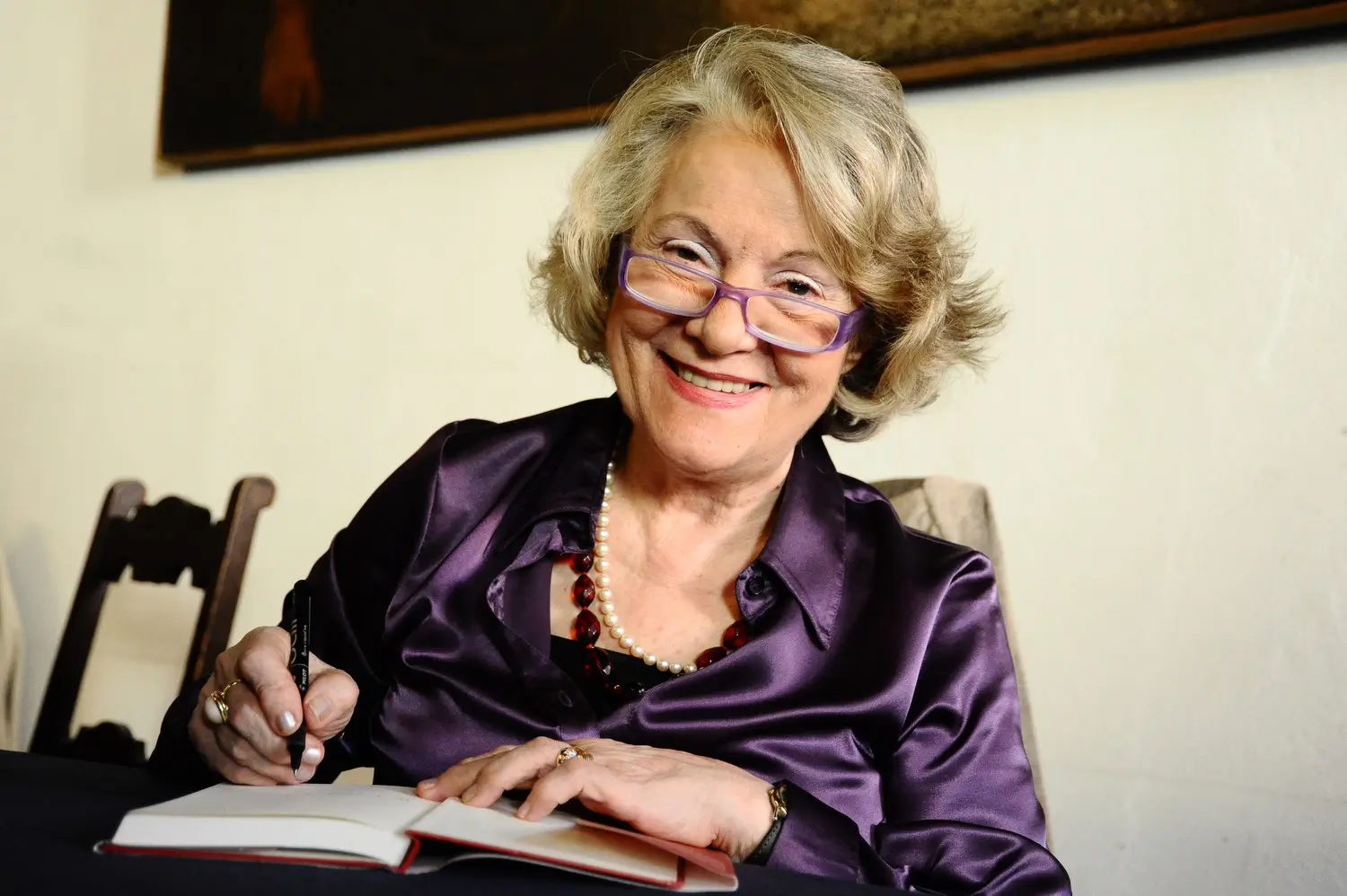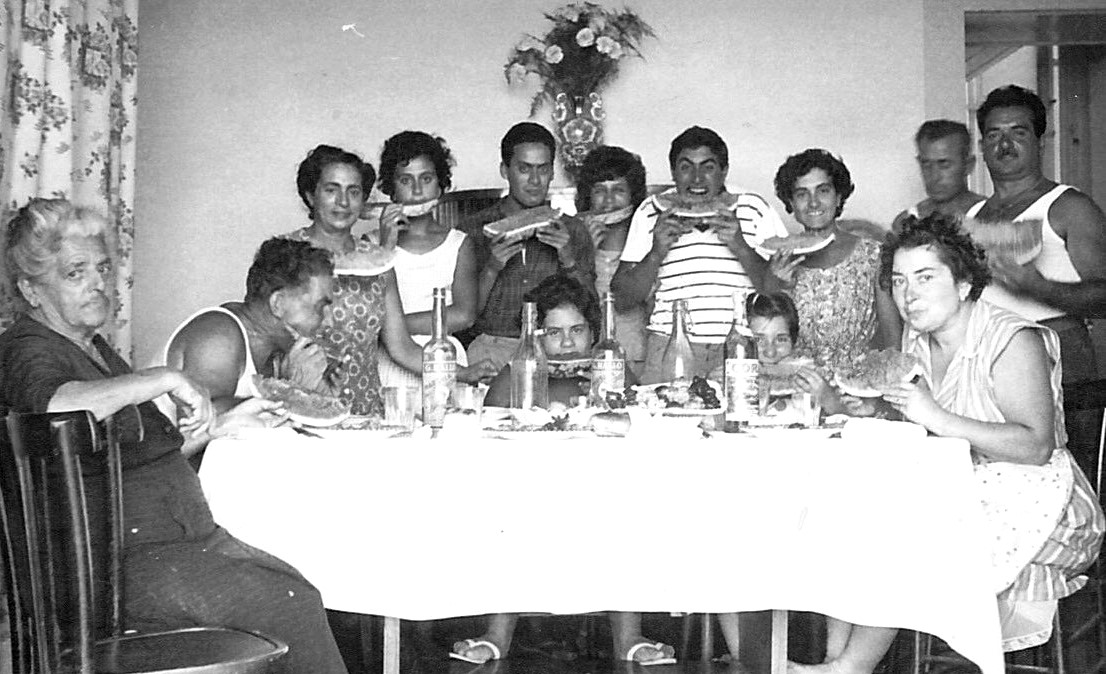On 29 October 2025, students and third-media students and Liceo de La Scuola d’Italia in New York had the opportunity to meet Dr. Antonia Arslan, on the occasion of the twenty-year publication of his novel “La masseria delle allodole”. A meeting that has been able to combine the necessity of historical memory with the depth of personal memory, offering students a direct testimony of one of the most tragic pages of the twentieth century.
Antonia Arslan, born in Padua in 1938 from Armenian family, is an Italian writer and essayist. Graduated in classical archaeology, she has for many years been professor of modern and contemporary Italian literature at the University of Padua. He revealed his profound Armenian identity, becoming one of the most important voices in the testimony of Armenian genocide and transforming family memory into a cultural and civil mission.
“La masseria delle allodole”, published by Rizzoli in 2004, was translated into twenty languages and directed by the Taviani brothers for cinema. The novel won numerous awards, including the Premio Selezione Campiello and the Giuseppe Berto Prize for the Opera Prima, claiming itself as a fundamental work for understanding the Armenian genocide.
The novel tells the story of the Arslanian family in the 1915 Anatolia. The masseria of allodoles is the house, on the hills of Anatolia, where in May 1915 the males of the family, adults and children are slaughtered, and from where the odyssey of Armenian women begins, dragged through forced marches and prison camps. An epic of suffering but also of extraordinary resilience, where love for life also resists in the face of the absolute horror.
Il genocidio armeno: contesto storico
The term Armenian genocide indicates the systematic deportations and eliminations of Armenians perpetrated by the Ottoman Empire between 1915 and 1923. The Armenians use the expression Medz Yeghern, “great crime”, which commemorates on 24 April.
On 24 April 1915, in the night between 24 and 25 April, from 235 to 270 Armenian leaders of Constantinople were arrested. This deportation of intellectuals is considered the beginning of genocide. Of the 2.5 million Armenians in the Ottoman Empire at the beginning of the century, it is estimated that approximately one million died through systematic killings, marches of death, hunger and diseases.
L’origine personale del romanzo
During the meeting, Dr. Arslan shared the profoundly personal origin of his novel. The need to write “The masseria of allodoles” comes from a childhood experience, when the paternal grandfather told her the story of their family: the account of a tragedy, the testimony of those who had survived leaving their land as a boy and had seen their family be decimated.
That story remained imprinted in the memory of the young Antonia, sedimenting in the years until it became a narrative necessity. It was no longer just the story of his family, but the story of a whole people who risked being forgotten. This family genesis gives the work an authenticity that goes beyond historical reconstruction, making “La masseria delle allodole” a unique work, capable of touching the hearts of readers as well as their historical consciousness.
Un incontro di profonda intensità
The atmosphere during the meeting was characterized by respectful silence. Students listened carefully while the writer explained how literature could become a memory tool, how a novel can give voice to those who no longer have it. The Doctor has also read some poems drawn from Daniel Varujan’s “Golden Seas”, making her feel the deep bond with Armenian culture and spiritual wealth.
Dr. Arslan spoke with that sweetness that those who have experienced indirect pain, transmitted through generations, know modular. There was no anger in his words, but a firm determination not to allow those dead to be forgotten.
He told with particular emotion of the orphanages in Syria that they welcomed the survivors, where they created strange and salvific bonds: mothers who had lost their children and children left orphans found comfort in each other’s arms, restoring family ties broken by violence.
La ferita che non si rimargina
The most intense moment of the meeting came when a student asked a question of extraordinary depth: “Is the Armenian community healed by the wound of genocide?” Dr. Arslan’s answer was clear and painful: no, the Armenian community is not healed.
He explained that the wound remains open because there has never been an official recognition by the Turkish government. Turkey continues to deny genocide against Armenians. For this reason we talk about “infinite genocide”: are not only the dead, the violence, the deportations of 1915, but also the denial that continues, day after day, year after year.
In the world 30 states have officially recognized such events as genocide, but the lack of recognition on the part of Turkey makes it impossible for a true elaboration of mourning. Even today Turkey does not recognize Armenia and does not maintain relations with the Armenian state.
That answer made students understand something fundamental: The wounds of history are not left alone. Recognition, justice, truth is necessary. Without all this, pain remains open and is transmitted from generation to generation.
La letteratura come resistenza
Dr. Arslan highlighted the fundamental role of literature as a tool for memory and justice. A novel like “The masseria of allodoles” can do what often historiography alone cannot do: touch the heart before the mind, make concrete and personal what is likely to remain abstract. Through narration, the dead return to be people, with names, faces, stories.
He showed students how to write could be an act of resistance, how to tell can be a way to fight oblivion. In a world where denial seeks to erase facts, literature becomes a leap of truth.
Un testimone per il futuro
Students understood that Armenian genocide is not only a page of history to study on books, but a question still open, a wound that continues to bleed. They understood that silence and indifference are as complicit as direct violence, and that everyone has the responsibility to oppose denial.
The book was translated into 22 languages, 23 considering the Turkish one, which was printed but never allowed to circulate on the market. This detail also tells the persistence of negationism and the importance of cultural battle for truth.
According to Polish historian Raphael Lemkin (who coined the term genocide) it was the first episode in which a state systematically planned and executed the extermination of a people.
Now it is up to students to collect the witness: do not forget what they heard, talk about the Armenian genocide with those who do not know it, oppose to negationism, build a future in which memory is not only a rhetorical exercise but a concrete commitment.
Dr. Arslan has shown that even in the face of the greatest horror, human dignity can resist, hope can survive, and memory can become an instrument of justice. And he reminded all of us that, when we are asked, “Who still speaks today about the Armenian genocide?”, the answer must be: all of us. Always.
Article The memory that is not broken: the encounter with Antonia Arslan comes from IlNewyorkese.






